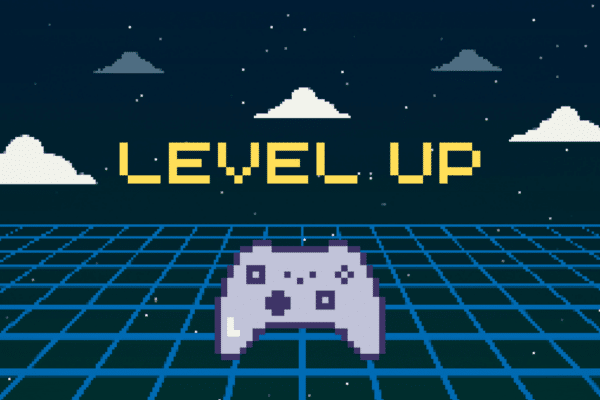Self-promotion in ELT: a response to Elaine Hodgson
Earlier this week Elaine Hodgson posted about the pros and cons of self-promotion, raising many important points. I was going to comment on the post, but realized my text got longer than the rules of politeness would allow, so here is my take on self-promotion in ELT, which, I must admit, echoes much of what Elaine has said.
- Teacher promotion is definitely something we need to discuss.
I hear you, sis. This business of self- and peer-promotion in ELT has been bothering me a lot as of late, so I was very pleased to read such a balanced and sensible view of it. All professions need to think of how they deal with that sort of thing, but the fields of education, law and health, whose job impacts lives so directly and at such a personal level, need to take extra care when it comes to marketing. It’s not just a trinket we are selling: in our case it’s education, and that has the power to change lives.
Although I could never understand the rude vocative at the end of the phrase, I can totally see why Clinton’s campaign motto “It’s the economy, stupid” became such a cliché: the economy does impact our daily lives a great deal.
Last year Dominic Walters wrote about the gig economy in ELT: if in the not-so-distant past a teacher would be employed by a school often for life, nowadays schools and companies are increasingly going for freelance teachers (or coaches and language consultants,).
We can (de)cry it all we want, but with the recent changes to Brazilian labor laws, temping – or its jazzier millennial synonym “gigging” – has only become more likely. Professionals of the arts, publishing and IT are already used to that, and now we shall be, too. No wonder teachers are being asked to bring a “portfolio” in hiring processes: we’re now curators of our own career.
If on the one hand that gives us more autonomy to manage our own professional development and career interests, on the other hand we are probably going to be on the constant lookout for new opportunities, which means knowing how to sell ourselves… almost ALL. THE. TIME.
- The gig economy changes the rules of the game.
While we may identify great professionals who now have 15+ years in education and haven’t reached such status by blatant self-promotion, I think nowadays that ship has sailed. In a way it’s like English language proficiency in other professions: you probably know (and teach) a few business people or academics over 50 who have climbed the corporate ladder or gotten on in the academic world with little English. However, if we were to ask them what requirements they themselves are placing on the new generation of professionals they are hiring/educating, the answer would be along the lines of “English is a must” or even “I want to know what OTHER languages they speak, because English is a given.”
Likewise, while the most experienced among us may have gotten away with being modest, the millennials can’t afford to. Come to think of it, even the heavy weights of global ELT and SLA are on social media nowadays promoting their work – the names of Harmer, Thornbury, and Krashen immediately spring to mind. And if those three, who need no introduction, somehow invest in self-promotion, where does that leave us, who have way less “brand power”?
- We need to come to terms with the need to self-promote.
I’m not an anthropologist, but I have the impression that self-promotion is often looked down on our culture in Brazil, with the exception perhaps of Sao Paulo, where this cultural shift seems to be going for longer (in fact, this was probably one of the major reasons why moving to SP has been the biggest cultural shock in my life). Even when people pay us compliments, the instinctive reaction – mine at least – is to dismiss it outright or to play it down.
So perhaps this much needed promotion is not something we have been brought up to do. How many of us have an elevator pitch ready, in case someone asks us about our professional life? Have we considered how an apparently innocent “What have you been working on?” can end up being an impromptu job interview for our next projects? How many of us even have business cards or have put thought into what the design of ours implies? Do we know what the Internet says about us to those who Google our names? Thou shalt be Googleable!
- And by “we” I mean women, too.
There is plenty of evidence that, while both men and women may struggle with self-promotion, women usually have an even harder time doing that. Not only are women usually raised to put others first, but successful women also tend to be seen less favorably than equally successful men. We are going to be judged and we know that. (If you don’t know where I’m coming from, please check Facebook CEO Sheryl Sandberg’s TED Talk.)
To be honest, for women, it’s one of those damned if you do, damned if you don’t situations. In a way, that’s quite liberating because we might as well do what we want. And if what we want is to get the opportunities available, we need to ‘lean in’, to use another of Sandberg’s term, and that entails acknowledging our merits and capabilities and making them clear when need be.
- Ethics still applies… I hope.
The problem with self-promotion is that some of it is done badly. I don’t know if we’re all on a learning curve, not being used to self-promoting and learning the ropes, but it’s always good to remember the basics. Being ethical includes, of course, not promising what we won’t deliver, not deceiving in any way, shape or form, not taking credit for other’ people’s work, and not using people. By all means, we should network, but also know how to treat other professionals as the human beings they are, instead of just someone we can get something out of. If the ethics argument is not convincing enough, then we could at least avoid the nastiness because people will see through the pretense and not fall for it a second time.
- Promote what we DO instead of who we ARE?
Here comes a controversial point I’d like to make. I’m aware that a common marketing strategy is to focus on “being” (both when talking about the client, “You are worth it, so spoil yourself” and when talking about the product, “This is the best product”), but I have mixed feelings about that kind of marketing when it comes to teachers.
What I call a “focus on being” shows up in subtle ways. For example, even our events sometimes publicize the speakers before the content of the talk. (In all fairness, that usually only means that the conference organizers are trying to get people to register but the speakers haven’t sent the abstracts yet.) In addition, social media culture tends to weigh in favor of image rather than content (remember “Imagem não é nada, sede é tudo? Except we should be drinking water, not soda). Finally, as Elaine brilliantly put it, our friends often give us hyperbolic labels (“Brilliant!” “Wonderful!”), with the best intentions of course, but which are sometimes attributed to us personally instead of to the qualities of the work.
Mind, it’s really great that we are celebrating one another. Teachers certainly need that support. However, while I’m certain we ARE all very competent, did we DO a competent job last time? What can we DO to improve? What are we actually DOING or have DONE that is worth the praise or criticism?
In other words, I believe we need to shift from the verb “to be” towards the verb “to do”. This may lead to more concrete feedback that will actually help us do a better job next time and also self-promote in a more palpable way, in a way that sends the message “Hey, hire me because I am able to do this, that and the other for your project, since I’ve done X, Y, and Z before.”, instead of the vain, empty and Facebookish “Hire me because I’m me.”
And as Elaine said, that has an added bonus of protecting us when we don’t do that well or when the feedback is not that positive: it’s not personal; it’s not about us; it’s about the work we did once. So if we did poorly once, we don’t need to hide in a cave never to be seen again: just focus on doing our best next time.
Changing the focus to results, to what we do, which in our case means focusing on learning*, is to me the way out of the conundrum posed by the need for self-promotion. In short, it’s how we get to toot our own horns and not sound full of ourselves… or full of hot air.
*Hat tip: Luiz Otávio Barros






